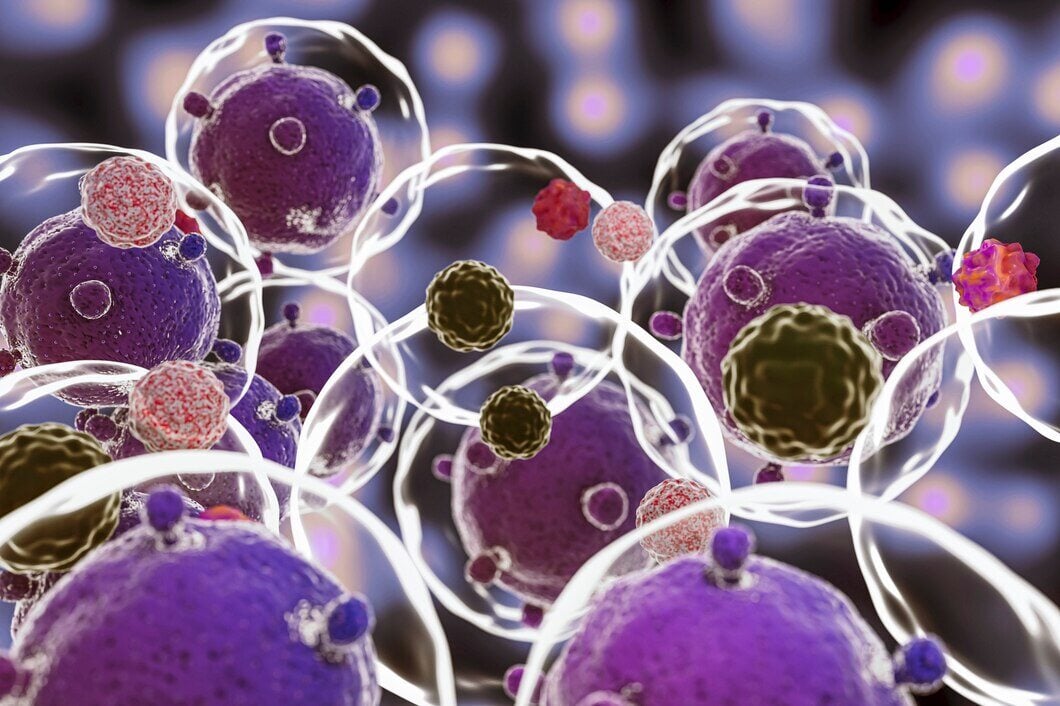Weather Changes and Histamine Reactions During Winter
Winter can be a challenging time for those susceptible to histamine reactions. As temperatures drop, the body can respond in ways that increase histamine production and exacerbate symptoms such as headaches, hives, and nasal congestion. Understanding why these reactions occur and how to manage them naturally is vital for maintaining comfort and health during the winter months.
Many environmental factors during winter can trigger histamine release. Cold weather itself can cause histamine to be released into the bloodstream, leading to symptoms like itching and swelling. Additionally, spending more time indoors can increase exposure to dust mites, mold, and other allergens, further complicating the issue.
Managing histamine reactions involves a combination of avoiding triggers and using natural remedies to reduce histamine levels. With the right approach, you can minimize discomfort and enjoy the winter season. It is important to find a functional medicine doctor who focuses on finding and fixing the core root cause of these symptoms to help you heal.
Why Winter Weather Triggers Histamine Reactions
Winter weather can trigger histamine reactions for several reasons. The cold temperatures can cause the body to release more histamine, leading to symptoms such as itching, swelling, and nasal congestion. When the skin is exposed to cold air, it can cause blood vessels to contract and then expand rapidly, releasing histamine in the process.
Another factor is dry air. Indoor heating systems tend to dry out the air, leading to dry skin and mucous membranes. This dryness can exacerbate histamine reactions as the body tries to compensate by producing more mucus, which can irritate the nasal passages and lead to congestion and sneezing.
Furthermore, the winter season often means spending more time indoors. This increases exposure to indoor allergens such as dust mites, mold, and pet dander. These allergens can trigger histamine release, worsening symptoms for those who are sensitive. Understanding these triggers is essential for managing histamine reactions during winter effectively.
Common Winter Environmental Triggers of Histamine Reactions
Numerous environmental factors during winter can act as histamine triggers. Identifying and managing these triggers can help reduce symptoms and improve overall well-being. Here are some common winter environmental triggers:
- Dust Mites: These tiny creatures thrive in warm, humid environments like bedding and upholstered furniture. Increased indoor time during winter can lead to higher exposure.
- Mold: Mold can grow in damp areas of the home, such as basements and bathrooms. Poor ventilation during winter can increase mold growth, which can release spores that trigger histamine reactions.
- Pet Dander: Spending more time indoors with pets can increase exposure to pet dander, a common allergen that can cause histamine release.
- Dry Indoor Air: Heaters and furnaces dry out the air, causing dry skin and mucous membranes, which can trigger histamine production.
- Cold Air: Direct exposure to cold air can cause the body to release histamine. This can lead to symptoms like hives, especially in those with cold urticaria.
Managing these environmental triggers involves making changes like regular cleaning, using air purifiers, and maintaining proper humidity levels. It is important to find a functional medicine doctor who focuses on finding and fixing the core root cause of these symptoms to help you heal.
Natural Remedies to Manage Winter Histamine Reactions
Managing histamine reactions during winter naturally involves a combination of dietary adjustments, supplements, and lifestyle changes. Here are some effective natural remedies:
1. Adjust Your Diet:
- Avoid High-Histamine Foods: Steer clear of aged cheeses, processed meats, and fermented foods.
- Eat Fresh Foods: Choose fresh fruits and vegetables over canned or packaged options.
- Balance Nutrients: Incorporate anti-inflammatory foods like fish rich in omega-3 fatty acids and green leafy vegetables.
2. Use Natural Supplements:
- Quercetin: This flavonoid helps stabilize mast cells, reducing histamine release.
- Vitamin C: Known for its natural antihistamine properties, it can lower histamine levels.
- Probiotics: Support gut health to manage histamine levels more effectively.
3. Stay Hydrated:
- Hydrate Skin and Mucous Membranes: Drink plenty of water and use a humidifier to keep indoor air moist.
- Herbal Teas: Opt for teas like ginger or chamomile to soothe histamine symptoms.
4. Practice Stress Management:
- Yoga and Meditation: These practices can help lower stress, which can trigger histamine release.
- Regular Exercise: Gentle exercises such as walking can improve overall well-being without exacerbating symptoms.
These natural remedies can help manage histamine reactions more effectively during winter, allowing you to stay comfortable and healthy.
How a Functional Medicine Approach Can Help This Winter
A functional medicine approach focuses on treating the root causes of histamine reactions rather than just managing symptoms. This approach involves the following steps:
1. Comprehensive Evaluation:
- Detailed History: Understanding your medical history, diet, lifestyle, and environment to identify triggers.
- Specific Testing: Conducting tests to determine enzyme deficiencies, gut health issues, and nutrient imbalances.
2. Personalized Treatment Plans:
- Customized Diet: Tailoring diet plans to your specific needs and tolerances.
- Individualized Supplements: Providing supplements based on the unique deficiencies identified.
3. Holistic Therapies:
- Bioidentical Hormones and Herbal Remedies: Utilizing natural solutions over conventional medications.
- Lifestyle Coaching: Offering guidance on stress management, sleep hygiene, and detoxification practices.
4. Ongoing Support:
- Regular Monitoring: Ensuring the effectiveness of treatment plans through consistent follow-ups.
- Patient Education: Empowering you with knowledge and tools to manage symptoms.
Functional medicine aims to improve your overall health by addressing all contributing factors. It is important to find a functional medicine doctor who focuses on finding and fixing the core root cause of these symptoms to help you heal.
Conclusion
Winter can be a tough season for those dealing with histamine reactions, but understanding the triggers and managing them with natural remedies can make a big difference. Avoiding environmental triggers, maintaining a balanced diet, and incorporating natural supplements and stress management techniques are key steps to reducing symptoms.
Taking a functional medicine approach provides a comprehensive plan tailored to your unique needs. At Infinity Wellness, located in Waxahachie, TX, we specialize in holistic, root-cause care tailored to your unique health journey. Serving both local and nationwide patients through in-person and virtual services, we offer comprehensive programs to address conditions such as hormonal imbalances, chronic fatigue, and digestive issues. Our goal is to help you achieve long-term wellness and vitality.
Ready to transform your health? Book an appointment here - Our Holistic Approach to Wellness - Infinity Wellness Center.



